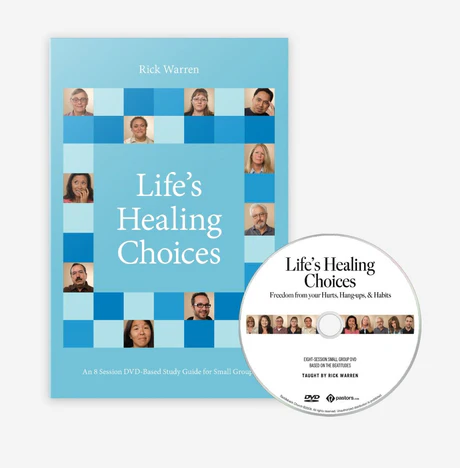FellowshipPreaching/TeachingLeadershipCelebrate RecoveryDiscipleshipSmall GroupsEvangelismWorshipMinistry
The Epidemic of Bible Illiteracy in Our Churches

When was the last time you read a book? For almost 1 in 4 of us, it was more than a year ago, according to Pew Research. That's three times the number who didn't read a book in 1978. In America, we have a literacy problem. But more concerning to me, we have a biblical literacy problem. Americans, including churchgoers, aren't reading much of any book, including the Good Book.
The Sad Statistics
Christians claim to believe the Bible is God's Word. We claim it's God's divinely inspired, inerrant message to us. Yet despite this, we aren't reading it. A recent LifeWay Research study found only 45 percent of those who regularly attend church read the Bible more than once a week. Over 40 percent of the people attending read their Bible occasionally, maybe once or twice a month. Almost 1 in 5 churchgoers say they never read the Bible—essentially the same number who read it every day.Small groups are key to combating and changing the epidemic of biblical illiteracy.
Because we don't read God's Word, it follows that we don't know it. To understand the effects, we can look to statistics of another Western country: the United Kingdom. The United Kingdom Bible Society surveyed British children and found many could not identify common Bible stories. When given a list of stories, almost 1 in 3 didn't choose the Nativity as part of the Bible and over half (59 percent) didn't know that Jonah being swallowed by the great fish is in the Bible.
British parents didn't do much better. Around 30 percent of parents don't know Adam and Eve, David and Goliath, or the Good Samaritan are in the Bible. To make matters worse, 27 percent think Superman is or might be a biblical story. More than 1 in 3 believes the same about Harry Potter. And more than half (54 percent) believe The Hunger Games is or might be a story from the Bible.
But it's more than simply not knowing stories from Scripture. Our lack of biblical literacy has led to a lack of biblical doctrine. LifeWay Research found that while 67 percent of Americans believe heaven is a real place, 45 percent believe there are many ways to get there—including 1 in 5 evangelical Christians. More than half of evangelicals (59 percent) believe the Holy Spirit is a force and not a personal being—in contrast to the orthodox biblical teaching of the Trinity being three Persons in one God. As a whole, Americans, including many Christians, hold unbiblical views on hell, sin, salvation, Jesus, humanity, and the Bible itself.
There is little excuse for anyone living in Western Civilization, particularly Christians, to not know or read the Bible. Nine out of ten American homes have at least one Bible. The average American—Christian or not—owns at least three Bibles. And technology has put Bibles at our fingertips wherever we are—you can download the Bible for free on your smartphone.
In contrast, most Christians desire to become more mature followers of Christ. LifeWay Research found 90 percent of churchgoers "desire to please and honor Jesus in all I do." Almost 60 percent agree with the statement, "Throughout the day, I find myself thinking about biblical truths." It's striking that while most of us desire to please Jesus, few of us take the time to check the Bible to find out if we are actually doing it. Clearly, there's a disconnect.
How to Combat this Negative Trend
So how do we get people to pull the Bible off their bookshelves and put it into their lives? The research we've done indicates that several factors lead to a higher likelihood of someone engaging the Bible. In this case, we mean they will allow God, through his Word, to lead and change their life. Here are the eight predictors of biblical engagement:- Confessing sins and wrongdoings to God and asking for forgiveness
- Following Jesus Christ for years
- Being willing to obey God, no matter the cost
- Praying for the spiritual status of unbelievers
- Reading a book about increasing spiritual growth
- Being discipled or mentored one-on-one by a more spiritually mature Christian
- Memorizing Bible verses
- Attending a small group focused on Bible study
For growth to occur in the church, people groups must continuously grow and multiply.
As we wrote in the book, "God has supernaturally ordained community to sanctify his people to grow in Christ. A call to discipleship and spiritual maturity is a call to biblical community." It doesn't matter what you call small groups within your church community—life groups, Sunday school, discipleship classes, Bible study fellowships—the importance of them remains the same. It's impossible to make disciples apart from community. Groups might not be the only place transformation happens, but I'm convinced they're the primary place.
Most pastors agree groups are important to the life of their church, but there's a disconnect between the stated importance and the reality of what's happening in most churches. Our research found 92 percent of Protestant pastors believe their people are making significant progress in their spiritual development, but more than half (56 percent) admit they don't regularly assess their personal growth. In addition, less than half (42 percent) say their churches have a "well-defined" approach to group ministry. Without a clear plan for small groups, your congregation is missing out on God's tool for transformation and growth.







